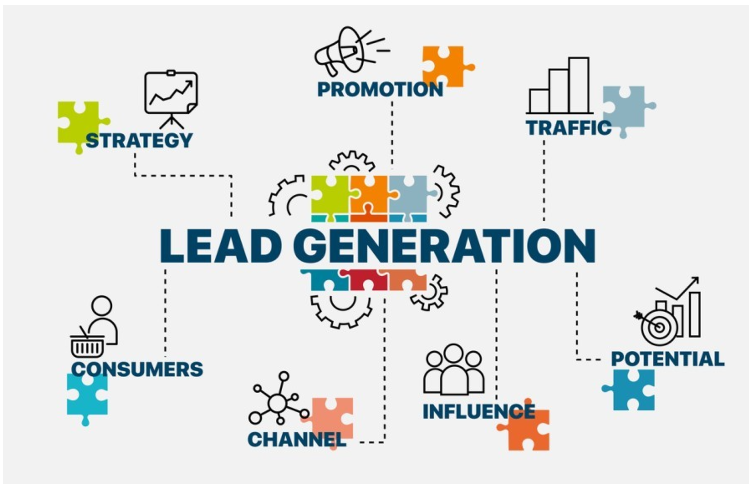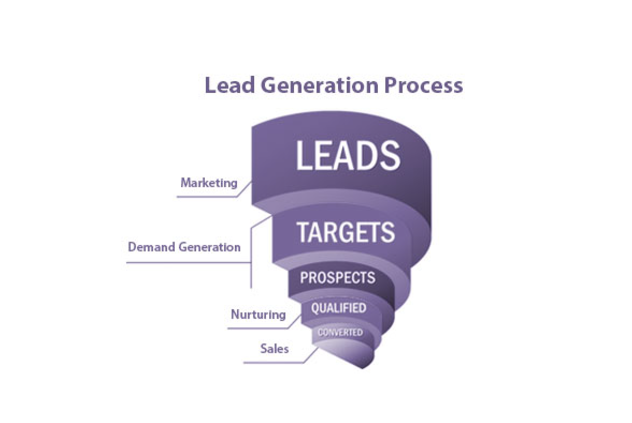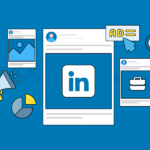Introduction
In the ever-evolving SaaS industry, B2B lead generation is the backbone of business growth. With intense competition and tech-savvy buyers, companies must go beyond traditional methods to attract, engage, and convert potential leads. This article dives deep into the essentials of B2B lead generation in the SaaS sector, exploring actionable strategies, tools, and trends to stay ahead in 2024.

1. Why B2B Lead Generation is Crucial for SaaS Businesses
Lead generation is not just about filling your sales funnel; it’s about driving sustainable growth. For SaaS businesses, where subscription models dominate, acquiring high-quality leads ensures:
- Predictable Revenue Streams: Reliable leads lead to long-term customer relationships.
- Optimized Marketing ROI: Targeted efforts save costs and maximize returns.
- Business Scalability: A steady inflow of leads supports growth and expansion.
The dynamic SaaS landscape makes it essential to adopt innovative lead-generation practices tailored to modern buyers.
2. Understanding Your Target Audience
Successful B2B lead generation starts with a clear understanding of your ideal customers. This involves:
- Creating Buyer Personas: Identify demographics, industry, pain points, and goals.
- Segmenting Your Audience: Tailor strategies for startups, enterprises, or SMEs based on their unique requirements.
- Analyzing Decision-Making Processes: Learn who makes the purchasing decisions and their evaluation criteria.
A SaaS company targeting healthcare providers will use different messaging than one focused on eCommerce brands.
3. Proven Strategies for SaaS B2B Lead Generation
a. Inbound Marketing with Value-Packed Content
Content marketing remains a cornerstone of lead generation. Focus on:
- Blogs and E-books: Share insights on industry trends, case studies, and actionable tips.
- Webinars and Tutorials: Educate prospects on solving their challenges using your SaaS solution.
- SEO Optimization: Rank high on search engines with targeted keywords like “best SaaS lead generation tools” or “B2B SaaS marketing trends.”
b. Social Media Campaigns
Leverage platforms like LinkedIn and Twitter to build relationships. Strategies include:
- Sharing thought leadership articles.
- Hosting live events or Q&A sessions.
- Utilizing LinkedIn ads to target decision-makers directly.
c. Email Marketing
Email campaigns remain effective for nurturing leads. Best practices include:
- Personalizing messages for different stages of the buyer journey.
- Highlighting your SaaS product’s USPs in concise, compelling formats.
- Automating follow-ups to engage prospects over time.
d. Account-Based Marketing (ABM)
ABM focuses on high-value accounts with tailored messaging. This approach involves:
- Collaborating closely between sales and marketing teams.
- Customizing pitches to address specific company pain points.
- Using tools like HubSpot or Demandbase for scalable ABM campaigns.
e. Referral Programs
Word-of-mouth recommendations carry significant weight. Encourage existing customers to refer others by:
- Offering discounts or incentives.
- Highlighting testimonials and success stories.
4. Leveraging Data-Driven Tools for Better Results
The SaaS industry thrives on technology. Use data-driven tools to enhance lead generation efforts:
a. Customer Relationship Management (CRM) Tools
Platforms like Salesforce and HubSpot help manage interactions, track progress, and nurture relationships.
b. Marketing Automation Software
Tools like Marketo or Mailchimp streamline email campaigns, lead scoring, and analytics.
c. Analytics and Reporting
Google Analytics or Mixpanel provides insights into website performance and campaign ROI, helping refine strategies.
d. Chatbots and AI
AI-powered chatbots like Drift engage visitors in real-time, qualifying leads faster and enhancing user experience.
5. Tracking and Optimizing Lead Generation Campaigns
Lead generation doesn’t end with the campaign launch. Constant tracking and optimization are vital to ensure maximum ROI:
a. Measure Key Metrics
Focus on metrics like:
- Conversion rates.
- Cost per lead (CPL).
- Time to conversion.
b. A/B Testing
Test different versions of emails, landing pages, or CTAs to identify what works best.
c. Collect Feedback
Reach out to leads and customers for insights into their experience, refining your approach for future campaigns.
d. Continuous Training
Ensure your sales and marketing teams are equipped with the latest knowledge on tools and trends.
Read More about Lead Gen at: https://frinzy.in/mastering-lead-generation-via-email-marketing-in-the-saas-industry/

Conclusion
B2B lead generation in the SaaS industry is an intricate process that blends creativity with data-driven strategies. From leveraging inbound marketing to implementing cutting-edge tools, every step is an opportunity to connect with your target audience and drive growth. As competition intensifies in 2024, the businesses that adapt and innovate will be the ones that succeed.
By focusing on delivering value, maintaining consistency, and optimizing campaigns, SaaS companies can unlock a steady flow of high-quality leads, ensuring long-term success in a highly competitive market. To book a slot with us visit: https://calendly.com/frinzy/frinzy_product_demo?month=2024-10



